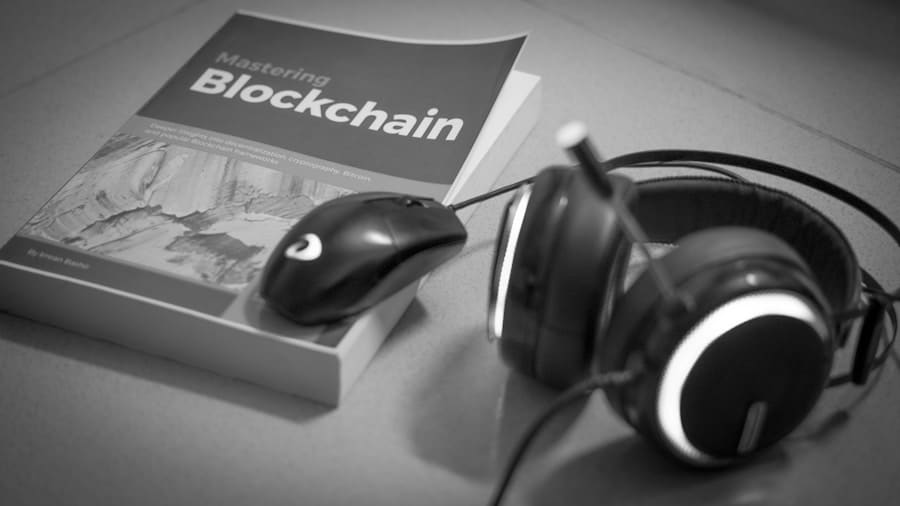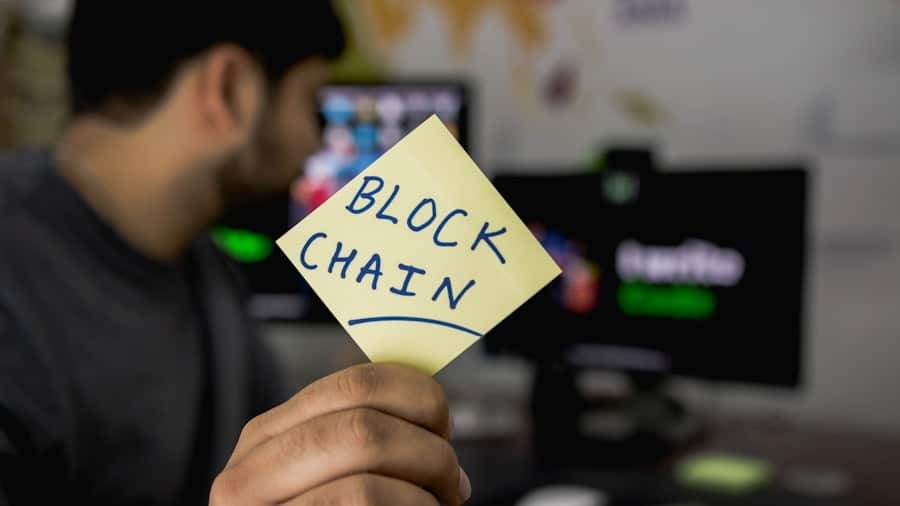In the rapidly evolving landscape of the digital economy, the integration of artificial intelligence (AI) and blockchain technology is reshaping how individuals and organizations manage their work portfolios. Digital work portfolios, which serve as comprehensive repositories of an individual’s skills, experiences, and accomplishments, are becoming increasingly important in a world where remote work and gig economies are on the rise. The convergence of AI and blockchain offers innovative solutions that enhance the functionality, security, and accessibility of these portfolios, enabling users to present their qualifications more effectively and transparently.
AI, with its ability to analyze vast amounts of data and generate insights, plays a pivotal role in personalizing and optimizing digital work portfolios. It can assist users in curating their content, suggesting relevant skills to highlight based on industry trends, and even predicting future career paths. On the other hand, blockchain technology provides a decentralized and immutable ledger that ensures the authenticity of the information contained within these portfolios.
By leveraging these two powerful technologies, individuals can create dynamic and trustworthy representations of their professional identities, which can significantly impact their career trajectories.
Key Takeaways
- AI and blockchain are revolutionizing digital work portfolios by providing new ways to enhance and secure professional achievements and credentials.
- AI plays a crucial role in automating tasks, analyzing data, and personalizing user experiences within digital work portfolios.
- Blockchain technology ensures the security, immutability, and transparency of digital work portfolios, making it easier to verify and authenticate credentials.
- The combination of AI and blockchain in digital work portfolios brings benefits such as increased efficiency, reduced fraud, improved trust, and enhanced data security.
- Implementing AI and blockchain in digital work portfolios comes with challenges and risks, including data privacy concerns, technological barriers, and potential job displacement.
The Role of AI in Enhancing Digital Work Portfolios
Artificial intelligence enhances digital work portfolios by automating various processes that traditionally required manual input. For instance, AI algorithms can analyze job descriptions and identify key skills that are in demand within specific industries. This capability allows users to tailor their portfolios to align with market needs, ensuring that they remain competitive in an ever-changing job landscape.
By utilizing natural language processing (NLP), AI can also assist in refining the language used in portfolio descriptions, making them more engaging and impactful. Moreover, AI-driven analytics can provide users with insights into how their portfolios are performing in terms of visibility and engagement. By tracking metrics such as views, downloads, and interactions, individuals can gain a better understanding of what resonates with potential employers or clients.
This data-driven approach enables users to make informed decisions about how to present their skills and experiences, ultimately leading to more effective job searches or freelance opportunities. Additionally, AI can facilitate continuous learning by recommending courses or certifications that align with a user’s career goals, thereby enhancing their portfolio over time.
The Role of Blockchain in Enhancing Digital Work Portfolios

Blockchain technology introduces a level of security and trust that is crucial for digital work portfolios. One of the primary advantages of blockchain is its ability to create a tamper-proof record of achievements and credentials. When an individual completes a course or earns a certification, this information can be recorded on a blockchain, providing verifiable proof of their qualifications.
Furthermore, blockchain facilitates the creation of decentralized identity systems that empower individuals to control their own data. Instead of relying on centralized platforms that may have access to personal information, users can manage their credentials through blockchain-based solutions.
This not only enhances privacy but also allows for greater flexibility in how individuals present their work portfolios. For example, a freelancer could selectively share specific credentials with potential clients while keeping other information private. This level of control fosters trust between parties and encourages more transparent interactions in the job market.
Benefits of AI and Blockchain in Digital Work Portfolios
The integration of AI and blockchain into digital work portfolios offers numerous benefits that extend beyond mere convenience. One significant advantage is the enhanced credibility that comes from using blockchain technology to verify credentials. When potential employers see that a candidate’s achievements are backed by an immutable ledger, they are more likely to trust the information presented.
This trust can lead to increased opportunities for interviews and job offers, as employers feel more confident in their hiring decisions. Additionally, the combination of AI and blockchain can streamline the hiring process for both candidates and employers. AI can automate the initial screening of applications by matching candidates’ skills with job requirements, while blockchain ensures that all claims made by candidates are verifiable.
This dual approach reduces the time spent on manual vetting processes and allows hiring managers to focus on engaging with qualified candidates more efficiently. Furthermore, as organizations increasingly adopt remote work models, having a reliable digital work portfolio becomes essential for showcasing skills across geographical boundaries.
Challenges and Risks of Implementing AI and Blockchain in Digital Work Portfolios
Despite the promising advantages of integrating AI and blockchain into digital work portfolios, several challenges and risks must be addressed. One major concern is the complexity associated with implementing these technologies. Many individuals may lack the technical expertise required to create or manage blockchain-based portfolios or utilize AI tools effectively.
This knowledge gap could lead to unequal access to these innovations, potentially disadvantaging those who are less tech-savvy. Moreover, there are privacy concerns related to data storage on blockchain networks. While blockchain offers enhanced security features, it also raises questions about how personal information is stored and shared.
If sensitive data is recorded on a public blockchain without proper encryption or anonymization measures, it could expose individuals to identity theft or other malicious activities. Therefore, it is crucial for developers and organizations to establish robust protocols that protect user data while still leveraging the benefits of blockchain technology.
Case Studies of Successful Implementation of AI and Blockchain in Digital Work Portfolios

Verified Credentials with LinkedIn
One notable example is LinkedIn’s incorporation of blockchain technology to verify user credentials. By partnering with educational institutions and certification bodies, LinkedIn enables users to showcase their verified achievements directly on their profiles. This initiative not only enhances the credibility of user profiles but also streamlines the verification process for employers seeking qualified candidates.
Personalized Learning with IBM’s SkillsBuild
Another compelling case study is IBM’s SkillsBuild platform, which leverages AI to recommend personalized learning paths for users based on their career aspirations and current skill sets. The platform also incorporates blockchain technology to issue digital badges for completed courses, securely stored on a decentralized ledger.
Building Credible Digital Work Portfolios
This combination empowers users to build credible digital work portfolios while continuously developing their skills in alignment with industry demands.
Future Trends and Opportunities for AI and Blockchain in Digital Work Portfolios
As technology continues to advance, the future of digital work portfolios will likely see even greater integration of AI and blockchain capabilities. One emerging trend is the use of AI-driven virtual assistants that can help users curate their portfolios in real-time based on evolving job market trends. These assistants could analyze job postings across various platforms and suggest updates or modifications to ensure that users remain competitive.
Additionally, as remote work becomes increasingly normalized, there will be a growing demand for standardized credentialing systems powered by blockchain technology. Organizations may collaborate to create industry-wide standards for verifying skills and qualifications, making it easier for individuals to navigate diverse job markets globally. This shift could lead to a more equitable hiring process where skills take precedence over traditional educational backgrounds.
The Impact of AI and Blockchain on the Future of Digital Work Portfolios
The integration of AI and blockchain technologies into digital work portfolios represents a transformative shift in how individuals present their professional identities.
While challenges remain regarding implementation and privacy concerns, the potential benefits far outweigh the risks when approached thoughtfully.
As we look toward the future, it is clear that AI and blockchain will play pivotal roles in shaping the landscape of digital work portfolios. The ongoing evolution of these technologies will continue to create new opportunities for individuals seeking to showcase their skills while ensuring that their achievements are recognized and validated in an increasingly digital world.
In a related article,

